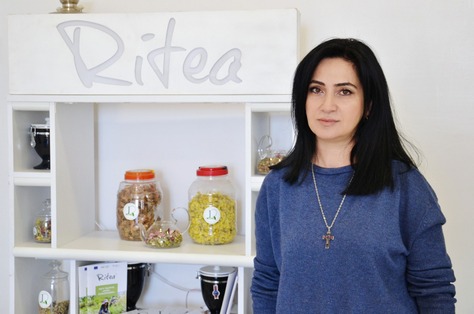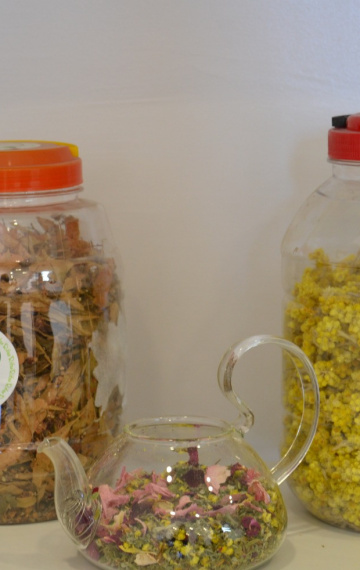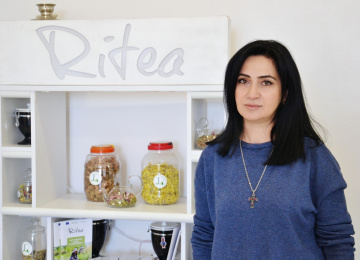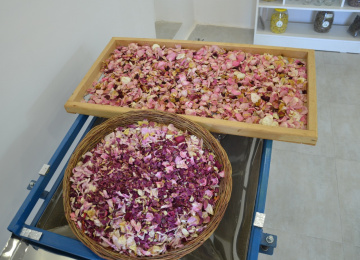
Under “Eastern Partnership: Ready to Trade,” an EU4Business initiative, Armenian tea growers have gained expert advice on how to enter new markets and present their products on leading international platforms. Local SMEs have established business ties with international buyers at major trade shows such as BIOFACH, a trade fair for organic food, SIAL, a food-processing expo, and ANUGA, an international food and beverage fair.
The practice of growing herbs in the Armenian Highlands dates back to ancient times, as the region was home to a number of valuable herbs that were exported to different parts of the world. Back in the first century AD, Pliny the Elder praised the toning and rejuvenating properties of Upan (Laserpitium) a then-famous herb used to treat tuberculosis, fevers and cirrhosis of the liver, among other diseases. The healing power of Armenian herbs was also described in the works of Herodotus, Strabo, Xenophon and Tacitus.
Centuries later, Armenian herbs and herbal teas are still being exported to different countries worldwide—to what are now EU member states, where these herbs have earned the appreciation of the Chancellor of Germany. “Eastern Partnership: Ready to Trade,” an EU4Business initiative, has been helping local companies produce internationally competitive herbs and herbal teas, and enter new markets. The project is being implemented by the International Trade Centre (ITC) and supported by the European Union under its EU4Business Initiative.
The quality of local herbs and herbal teas is also praised by the experts working with the project who have been providing advice to Armenia-based companies.
“Adhering to quality standards, all the way from cultivating and harvesting, is of paramount importance,” says international tea expert Angela Pryce. “Sorting, removing foreign matter, and drying at the correct levels are key to producing a top-notch product. Of course, proper storage and warehousing ensure that the product is kept dry and away from light. Quality controls through the production site to reduce any risks using quality management systems such as HACCP are an excellent way for a business to review and manage this process across the supply chain.”
For two years now, Angela and Sanjo Guhu, an international tea expert from India, have provided training and one-to-one consultations to local tea producers on issues ranging from quality control to marketing and logistic.
“What works for local customers does not always appeal to European consumers,” notes Ritea Director Rita Martirosyan, one project beneficiary. “For example, local customers like herbal blends with a strong flavour while European customers prefer a more subtle taste. As Angela recommended, we are looking to expand our production to blend local herbs with black and green teas. We’re also planning to issue a new line of fruit tea blends to make our products more competitive internationally.” Rita adds that the ingredients of medicinal herbal teas need to be compliant with the EU database and indicate this on the pack when exported to the EU.
“The export potential for Armenian herbs is huge,” says Pryce. “The main challenge for local businesses looking to export would be to ensure that their product is legally compliant to be sold as a health product on the retail market. Particularly if the product is being sold with a link to health, there are legal requirements in place to make sure that a brand doesn’t mislead customers or makes a false claim.”
According to the expert, sales of traditional black teas are declining as consumers switch to herbs and fruit infusions. For instance, the UK market has reported volume growth of around 30% since 2013, which offers favourable conditions for businesses to export their herbal products to this or other international markets.



